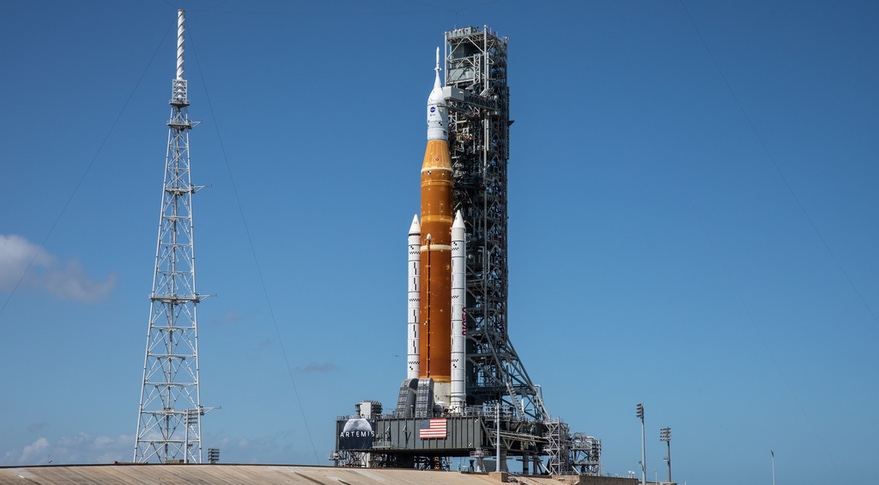WASHINGTON — NASA is preparing to award a contract to a Boeing-Northrop Grumman joint venture for Space Launch System missions that could run through the middle of the next decade.
The agency published July 26 a pre-solicitation notice for its Exploration Production and Operations Contract (EPOC), which would shift procurement of SLS launches to a services contract. Under the contract, NASA would procure launch services, rather than the vehicles themselves, for missions starting with Artemis 5 in the late 2020s.
NASA envisions EPOC as a means of saving money as well as opening the door to other uses of the heavy-lift rocket. The baseline contract would cover missions Artemis 5 through 9, with an option for missions Artemis 10 through 14 and another option for up to 10 non-Artemis launches. If the options are exercised, the contract would run through the Artemis 14 mission that NASA projects flying in 2036.
“Through this contract approach, we are working to enable the use of this one-of-a-kind heavy lift capability to other customers,” said Kathy Lueders, NASA associate administrator for space operations, in a statement. “This approach will also allow NASA to streamline SLS production and operations under one contract, creating a more affordable and sustainable exploration framework for decades to come.”
NASA expects to award the contract to a new joint venture called Deep Space Transport LLC. That joint venture consists of Boeing, the prime contractor for the SLS core stage and the Exploration Upper Stage that will be used on SLS missions starting with Artemis 4, and Northrop Grumman, the prime contractor for the SLS solid rocket boosters.
The contract would effectively be sole-sourced to Deep Space Transport. In the pre-solicitation notice, NASA says that it believes it would be infeasible to hand over production of SLS components to other companies because of both proprietary processes the companies use as well as the time required to establish an alternative production line.
“To have another company manufacture the Core Stage and Exploration Upper Stage may take as long as 10 years,” NASA states in the documents, with “a duplicative cost to the Government not expected to be recovered through competition.” Producing the five-segment boosters would take another company up to nine years, NASA estimates, and seven years for an alternative manufacturer of the RS-25 engines for the core stage produced by Aerojet Rocketdyne.
Neither the NASA statement nor the pre-solicitation notice discussed the value of the EPOC award. In a request for information last October, NASA said it was seeking “a substantial savings of 50% or more off of the current industry baseline per flight cost” for SLS through the new contract, but did not disclose that baseline cost.
“I think we’d be really happy at some stage if we could get our launch and processing costs to between $1 billion and $1.5 billion, but we’ve got a little ways to go,” Lueders said in a call with reporters last November about its plans for EPOC.
A report by NASA’s Office of Inspector General last November estimated one SLS costs $2.2 billion, accounting for a little more than half the total cost of $4.1 billion for a single Artemis mission that includes the Orion spacecraft and ground systems. The report was skeptical that NASA could achieve significant near-term cost savings, and recommended NASA “monitor the commercial development of heavy-lift space flight systems and begin discussions of whether it makes financial and strategic sense to consider these options” as alternatives to SLS.
NASA stated in the pre-solicitation notice that it expects to make the EPOC award to Deep Space Transport by the end of 2023.
